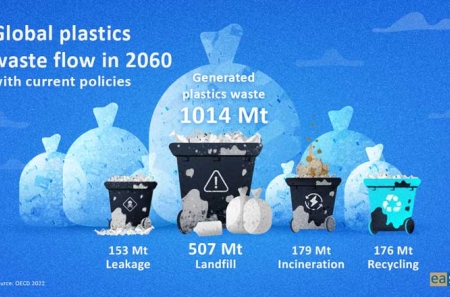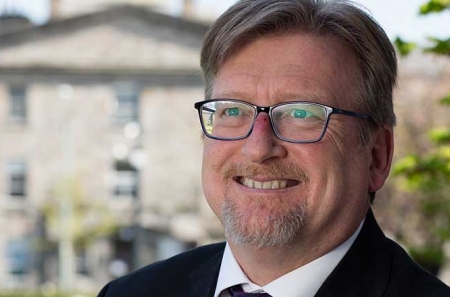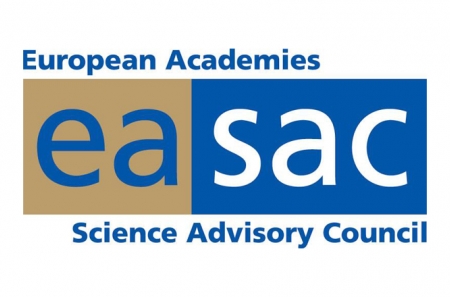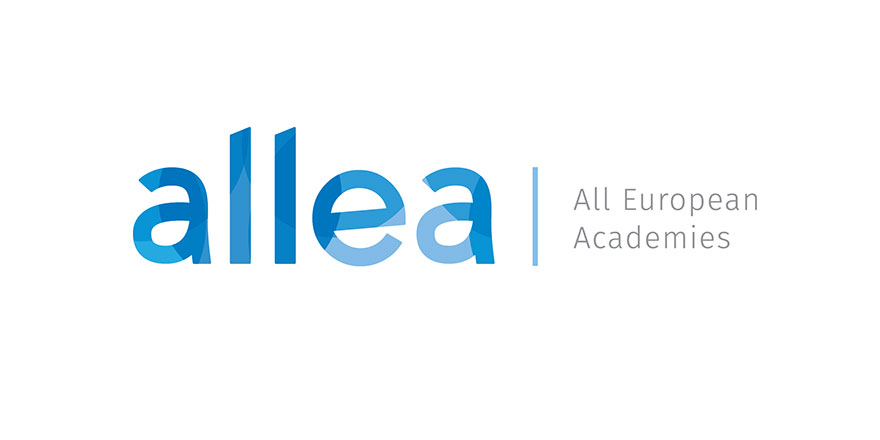
Why should mitigation, adaptation and climate justice be at the heart of education?
18 September 2020Dr Cliona Murphy discusses climate change education initiatives in Europe.
ALLEA recently published a new report: “A snapshot of Climate Change Education Initiatives in Europe: Initial findings and implications for future Climate Change Education” . The document has been prepared by ALLEA’s Science Education Working Group and contains recommendations based on an on-line survey of existing initiatives complemented by educational research literature and the expertise of the scholars who conducted this work. The preliminary findings were recently presented at the United Nations Climate Change conference COP25 in Madrid and A Royal Irish Academy Briefing Paper prepared by Dr Cliona Murphy discusses the report and its implications for Ireland.
In what follows, ALLEA, the European Federation of Academies of Sciences and Humanities, talks with Dr Cliona Murphy of Dublin City University who Chairs the international group behind the report.
Dr Cliona Murphy
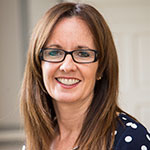 Dr Cliona Murphy is an associate professor in Dublin City University and has been lecturing in the area of science education for 19 years. She has developed and implemented a range of pre-service, post-graduate and continuing professional development programmes in science education. She has conducted and published research and developed educational resources in the areas of Nature of Science, Inquiry-Based Science Education, Education for Sustainability and Climate Change Education. Dr Murphy has collaborated in a number of National and International projects in STEM Education, Education for Sustainable Development and Climate Change Education. She was the Irish co-ordinator and principal professional development facilitator for Ireland in the FP7 Fibonacci Project and was the Irish co-ordinator for the EU Comenius SUSTAIN project. Most recently she was one of the principal investigators on the Education for a Sustainable World Project, that was funded by the Global Consortium for Sustainability Outcomes (GCSO). Dr Murphy has been a member of ALLEA’s Science Education Working Group since 2015. In January 2019 she was nominated to chair a sub-group of this working group to carry out a European survey on Climate Change Education Initiatives in Europe. In June 2019 Dr Murphy became Chair of ALLEA’s Science Education Working Group
Dr Cliona Murphy is an associate professor in Dublin City University and has been lecturing in the area of science education for 19 years. She has developed and implemented a range of pre-service, post-graduate and continuing professional development programmes in science education. She has conducted and published research and developed educational resources in the areas of Nature of Science, Inquiry-Based Science Education, Education for Sustainability and Climate Change Education. Dr Murphy has collaborated in a number of National and International projects in STEM Education, Education for Sustainable Development and Climate Change Education. She was the Irish co-ordinator and principal professional development facilitator for Ireland in the FP7 Fibonacci Project and was the Irish co-ordinator for the EU Comenius SUSTAIN project. Most recently she was one of the principal investigators on the Education for a Sustainable World Project, that was funded by the Global Consortium for Sustainability Outcomes (GCSO). Dr Murphy has been a member of ALLEA’s Science Education Working Group since 2015. In January 2019 she was nominated to chair a sub-group of this working group to carry out a European survey on Climate Change Education Initiatives in Europe. In June 2019 Dr Murphy became Chair of ALLEA’s Science Education Working Group
Discussion with Cliona Murphy about climate change education initiatives in Europe.
How did it come about that you started investigating existing climate change education initiatives across Europe?
The climate crisis increases and demands urgent actions. At the same time, the Paris agreement from 2015 imposes obligations towards climate change education on the member states of the European Union. These two aspects sparked discussions amongst the Science Education Working Group about educational resources that are available in different European countries to support teaching and learning about climate change.
From our discussions it became apparent that while there appeared to be many climate change education resources and initiatives being throughout Europe, there wasn’t any available source detailing these initiatives; their overall aims, content, focus and pedagogical approaches etc. We believed that research that would collect information about the different initiatives would be useful in identifying high quality resources that could be disseminated throughout Europe. We also thought that this work might identify gaps in the resources and initiatives and that these gaps could be addressed in the development of future climate change education resources. That’s how we decided to develop and carry out the survey.
The ALLEA report states that Climate Change Education should focus more on mitigation, adaptation, and climate justice. Could you explain why those three elements should have a more prominent place in education, and how this could be implemented?
Yes. In the survey we found that a very high percentage of the initiatives focussed on the causes of climate change and the science behind climate change, which of course are essential in understanding climate change. However, we noticed that considerably lower percentages of the initiatives focussed on mitigation and adaptation, which are instrumental if we are to overcome the challenges posed by the climate crisis. Knowledge about climate change is of course essential, but not sufficient in addressing climate change challenges if it is not coupled with knowledge of how to mitigate and adapt to these challenges.
In terms of ‘climate justice’, it is really important that our young people understand that mitigation is not only crucial for future generations but is also essential for current disadvantaged populations on whom climate change is having the biggest impact. Thus we questioned, for example, in the context of mitigation in developed countries, to what extent young people are being supported in their understanding about the role society today has to play in acting not only on their own interests but in the interest of others.
Knowledge about climate change is of course essential, but not sufficient in addressing climate change challenges if it is not coupled with knowledge of how to mitigate and adapt to these challenges.
That being said, we need to be very careful when teaching our young people about climate change that we don’t make them anxious and create a feeling of helplessness. It is important that climate change education resources and programmes adopt solution-oriented approaches that focus on collective actions as a means to decrease eco-anxiety while fostering a sense of agency amongst our young people.
What are the ALLEA Science Education Working Group’s plans for the future? Will this topic be further investigated or are you moving on to new subjects?
The working group are very passionate about climate change education and very much see this scoping-survey as a first step in progressing climate change education throughout Europe. Our goal is to support effective teaching and learning about climate change that would result in our young people throughout Europe developing the requisite: content knowledge; scientific, critical thinking and problem-solving skills; and, attitudes towards mitigating climate change.
Our survey provides a snapshot, an initial insight, into some of the initiatives currently being rolled out in Europe. However, it’s only a first step. A more representative large-scale survey of climate change education initiatives is warranted to obtain a more thorough account of these initiatives. As a next step, we would like to conduct a larger scale more representative European survey to identify commonalities, gaps, and best practices in climate change education. The findings from this larger-scale survey could ultimately lead to the development of a set of criteria or a framework that would inform the development of future initiatives.
Our goal is to support effective teaching and learning about climate change that would result in our young people throughout Europe developing the requisite: content knowledge; scientific, critical thinking and problem-solving skills; and, attitudes towards mitigating climate change.
Our survey revealed that while there appears to be a good range of education resources for teachers, in comparison there appears to be fewer professional development courses to support teachers in effectively teaching about climate change. As teachers have a vital role in climate change education, they need to be supported so they develop the confidence and competence to effectively teach about climate change. To this extent the working group would like to ensure that high-quality professional development programmes are developed and made widely available for teachers.
As a third step it would make sense to gather research that would assess; the quality of climate change education professional programmes; the extent to which teachers are implementing professional development methodologies in their classrooms; and, most importantly the impact on their students’ understanding of and attitudes towards climate change.
The working group is also interested in a number of other areas in science education, but is currently focusing on issues around Education for Sustainable Development, International Large-Scale Studies of Achievement, STEM / STEAM Education, and Nature of Science Pedagogy.
ALLEA and the Science Education Working Group
ALLEA is the European Federation of Academies of Sciences and Humanities, representing more than 50 academies from over 40 EU and non-EU countries. Since its foundation in 1994, ALLEA speaks out on behalf of its members on the European and international stages, promotes science as a global public good, and facilitates scientific collaboration across borders and disciplines.
The ALLEA Science Education Working Group is committed to supporting the further progression of science education throughout Europe to ensure our students develop the necessary knowledge, skills and motivation to participate as active citizens and to pursue careers in science. Furthermore the science education group is committed to ensuring students experience a science education that is engaging and relevant to them and that ultimately results in students throughout Europe truly valuing science and caring for the environment in which they live.

